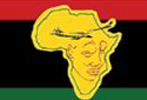A new thriller by Andrew Welsh-Huggins follows a detective investigating the disappearance of a Somali-American teenager in Ohio.

In the United States, Columbus, Ohio is the second largest hub for Somali immigrants who fled civil war back home. It is here in contemporary Columbus where The Third Brother, the fifth novel by Andrew Welsh-Huggins, unfolds. The novel, a literary thriller, deals with private investigator Andy Hayes’s search for a Somali-American boy who has suddenly disappeared and is now suspected of joining the Islamic State or a US-based terrorist group.
The story opens with a white supremacist man and his disciple harassing a Somali immigrant woman with her young children in the street, shouting “go home!” Unable to stand such public assault, Hayes intuitively drops his groceries and runs to her rescue. The story is covered by local media; Hayes turns into a hero among progressives while immediately becoming a foe of the far-right. The incident also builds his reputation among the Somali community in Columbus.
Amid growing anti-immigrant and anti-Muslim sentiment on one side, and the aggressive recruitment of the Islamic State that has been chiefly targeting the second generation of immigrants across the west on the other, the Somali community in Columbus has found itself between a rock and a hard place. After Hayes’s profile rises in the media, one Somali family reaches out to him to work on a particularly haunting case: the disappearance of their beloved son, Abdi.
Abdi’s older brother, Hassan, was radicalized and joined the Islamic State in Syria where he was killed. The initial assumption of outsiders is that Abdi followed in his brother’s footsteps. This is supported by unexpected, but radical posts on Facebook claiming he will retaliate for his brother coupled with his sudden disappearance. His immediate family, the Somali community, his school and his counselor, however, are not convinced and believe Abdi is innocent. But the case has attracted some powerful players, such as the FBI. It is against this backdrop and with barely any resources that private detective Hayes embarks on his mission. The story then unfolds and branches out into seemingly tangential sub-plots. It is only towards the end of the novel as we come closer to solving the mystery that we see the bigger picture.
While reviewing the circumstances surrounding Abdi’s disappearance, the investigator uncovers layers of deeply entrenched far-right sentiments of anti-government militia on one hand, welcoming hosts who try to build diverse communities on the other and the Somali community in the middle. The Somalis have fled war and are tired of anything to do with guns; they toil to make ends meet and recover lost time. But it is in these unique circumstances of trying to build new lives in a new country that makes young people an easy target for fundamentalists, as well as for law enforcement to see them as potential suspects.
The author has created some lasting characters. Among the most memorable is the self-deprecating narrator, Hayes, who has been, “bracketed by hefty child support payments and cash-flow ledgers that looks like a seismograph machine on a bad day in freaking country.” His dealings with his ex-wives, and ex-girlfriends and their new partners, is fascinating to read. (What irritates him the most is his failure to be a good father to his sons, as his role has been replaced by their stepfathers.)
Welsh-Huggins is a Columbus-based Associated Press journalist who covers criminal justice, and the book has benefited from his lived experience and his journalistic style of writing. Written in terse, brisk and explosive lines, with great attention to detail, combined with graphic descriptions, the story is not solely built on suspense. For someone like myself, who is familiar with Columbus and the Somali community, the story instantly resonates. In doing so, it elevates Columbus as a fascinating city in which to set a thriller.
The Third Brother challenges the lazy oversimplifications and collective guilt by association, race, and religion that has been at the core of the current US administration’s policies on immigration. The book shows how such unchallenged and unexamined narratives can easily be manipulated by the extremists who are very much aware that the system favors them. But at the same time, the book also shows characters like the school principal, Paulus, and school counselor Barbara, who are ready to give their necks to create a safe environment and welcome vulnerable members to their existing community.
While the novel is billed as a thriller, the dense writing, literary technique and characterization, however, would put The Third Brother under the rubric of a modern classic. Particularly in portraying the everyday life of underprivileged working-class communities, the book reads as more than a thriller story and stands the test of time.
You can order the book here.

